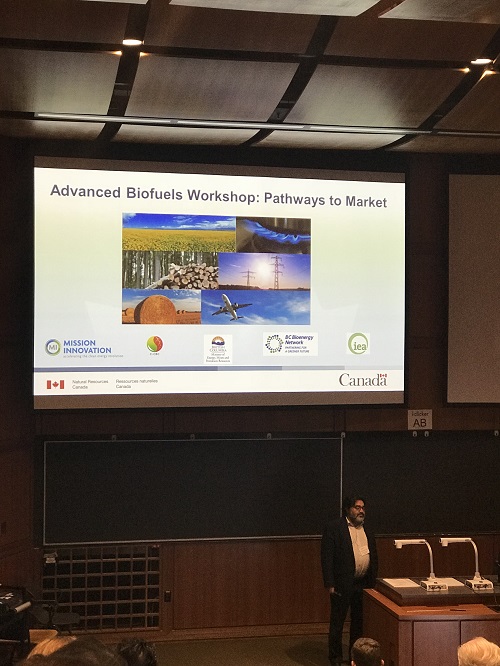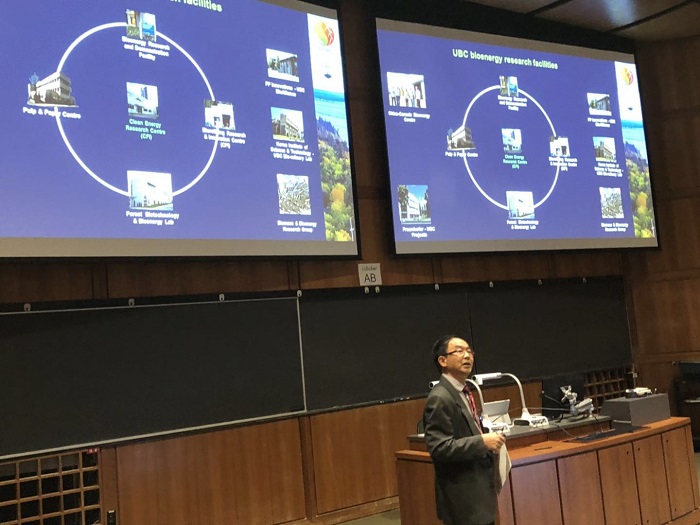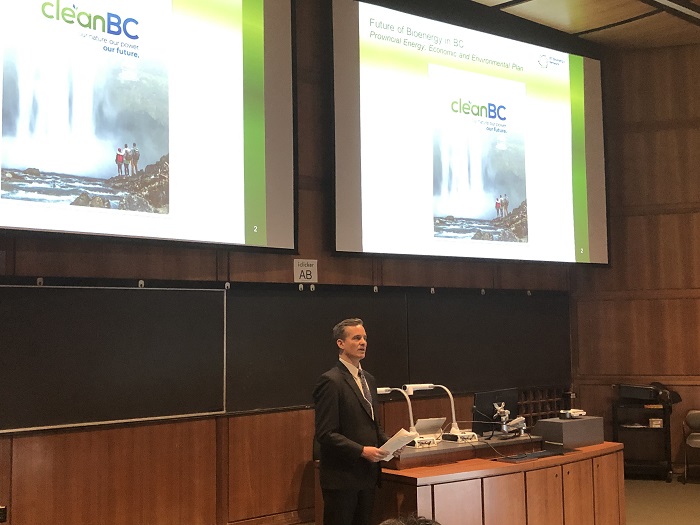On May 30-31, C-CBC co-organized the IC4 Advanced Biofuels Workshop: Pathways to Market, at the University of British Columbia. It’s a workshop with Mission Innovation (MI) which is a global initiative of 23 countries and the European Union. The Sustainable Biofuels Innovation Challenge (IC4) is one of the eight innovation challenges under the MI framework. The workshop was in conjunction with the Mission Innovation Ministerial Meeting and Clean Energy Ministerial Meetings held in Vancouver on May 27‐29. The other co-organizers are BC Bioenergy Network and International Energy Agency (IEA).
The theme of the workshop is “Pathways to Market”. Specifically, it is “how to connect dots across the supply chain to produce and use low-carbon fungible biofuels”. Unlike technical workshops, this event not only brought people from academia but also from industry and government to think about “what do we have to do to solve challenges to accelerate biofuels-related research, development and demonstration in order to achieve performance breakthroughs and cost reductions with the potential to significantly lower GHG emissions?”. It also included policy and funding round‐tables on mechanisms and models for international collaboration and data sharing as well as approaches to overcome scale‐up challenges.
The attendance reached over 130 participants from federal and provincial governments, industry, financial sector, advisory groups and universities to give presentations and exchange ideas. Among them there were representatives from China, Canada, India, and Brazil, who are the co-leads of IC4, to provide summary of their biofuel industry status and their governments’ commitments to increase the investment to develop and commercialize the production of advanced biofuels.
Modern bioenergy is the overlooked giant of renewables: Bioenergy is the only renewable source that can provide multiple energy forms including electricity, direct heat, and transport fuels. A large proportion of bioenergy is already from low sustainability risk waste and residue feedstocks. The entire biofuel industry needs to improve their communication approaches to send a consistent, sound and scientific messages on the sustainability of biofuels as sustainable biofuels have several benefits including GHG emissions reduction, energy security and rural development and economic stability. Canada has large pool of underutilized biomass resources such as forest and agricultural residues. However, strong market signals and supporting policies are required to make the logistics and use of these biomass resources economical for advanced biofuels production. With the continuous success of California’s Low Carbon Fuel Standard (CA-LCFS) in attracting most of the conventional and drop-in biofuels in North America, Canada’s Clean Fuel Standard has to do a heavy lifting to keep the domestic production of conventional biofuels in Canada as well as attracting investment in the production and use of drop-in biofuels in Canada.
Source: Dr. Mahmood Ebadian, Dr. Ziliang Wang




